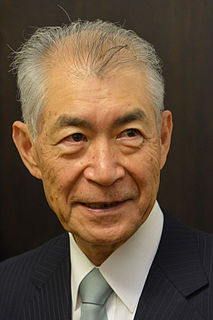A Quote by Heinrich Rohrer
In all the years with IBM Research, I have especially appreciated the freedom to pursue the activities I found interesting and greatly enjoyed the stimulus, collegial cooperation, frankness, and intellectual generosity of two scientific communities, namely in superconductivity and critical phenomena.
Related Quotes
It is well known that Russia has many interesting and promising developments in the military-technical sphere. We are ready to deliver the needed equipment and ready for joint cooperation in arms production with Brazilian specialists. This is an area that is very closely linked to high technology in general. In this respect, we hope to develop closer cooperation between the scientific communities in our two countries.
Superconductivity helped broaden my professional phase space. When I started my work, it was already known that magnetic fields could quench superconductivity. I found that the transition was not continuous, that superconductivity was initially enhanced in the presence of magnetic fields, then it would suddenly fall off.
There are, however, many challenges to Asian universities. First, academic freedom, in all senses, is much more critical to the success of a university than how much money is spent on infrastructure or on hiring big names. Faculty need to have the space to pursue the research that they are passionate about and the also need to have the freedom to express their opinions in the university, and in the society as a whole.
I have always thought it a great privilege to have as my colleague in the Palit Chair of Chemistry such a distinguished pioneer in scientific research and education in Bengal as Sir Prafulla Ray. It has been invariably my experience that I could count on his cooperation and sympathy in every matter concerning my scientific work.
Certainly I see the scientific view of the world as incompatible with religion, but that is not what is interesting about it. It is also incompatible with magic, but that also is not worth stressing. What is interesting about the scientific world view is that it is true, inspiring, remarkable and that it unites a whole lot of phenomena under a single heading.
The technological overflow from scientific research has brought scientific research this bad name about carrying an irresponsibility and an alienation from God - because scientific research has led to things like the atom bomb, it's led to problems with depletion of ozone in the Earth's atmosphere, or at least it's revealed those problems.
My three years at the NIH were critical in my scientific education. I learned an immense amount about the research process: developing assays, purifying macromolecules, documenting a discovery by many approaches, and writing clear manuscripts describing what is known and what remains to be investigated.



































